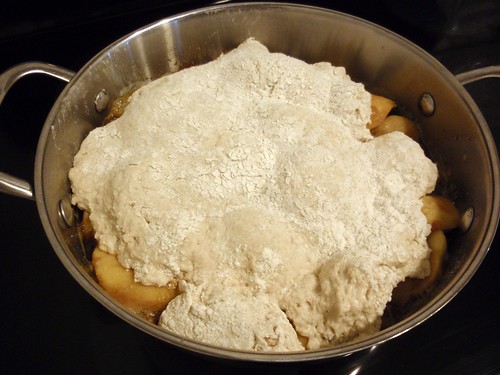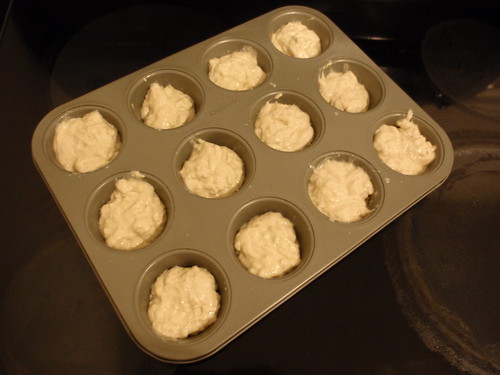This is from the June 8, 1888 edition of
Good Housekeeping. It was considered an old-fashioned recipe at the time; something people's grandmothers "used to make."
Take ten or twelve tart apples—none so good as the "Rhode Island Greenings,"
I used McIntosh apples, since they are my favorite apple, they were on sale, and they date back to 1811.

pare, core and quarter them. Add one cupful of water, place in a kettle to stew. As they begin to soften add two cupfuls of molasses.
I used sweet sorghum molasses.
Prepare a crust of one pint of flour— measured before sifting; one teaspoonful of sugar, one-half teaspoonful of salt, one-half teaspoonful of soda, one teaspoonful of cream of tartar.

Mix thoroughly, run through the sieve. Then, add sufficient sweet milk to make a soft dough. Roll out, and cover over the sweetened apple which by this time is boiling.

Steam without lifting the cover for twenty or thirty minutes.

The end result:

It was a hot mess, but good! I also added one of the suggested sauces: equal parts sugar, butter, and boiling milk, which was like gilding the lily. Vanilla ice cream is the only thing that could cut through all that sweetness.
Some use sugar instead of molasses, but if you want the "regulation slump," be sure to use the molasses.
Oddly, the Rhode Island Fruit Growers Assocition provides
a recipe for apple slump which uses sugar! And they bake it. Heretics!















